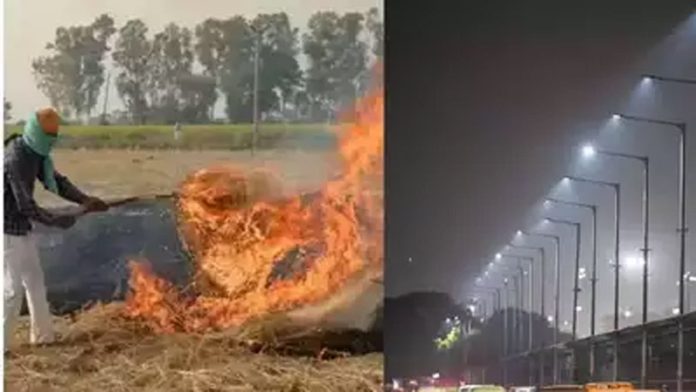NEW DELHI, Oct 26: The Centre on Saturday urged states to strengthen implementation of existing micro-level action plans for crop residue management, as authorities race to prevent the annual air quality crisis in the national capital.
In a high-level virtual meeting, co-chaired by Agriculture Minister Shivraj Singh Chouhan and Environment Minister Bhupender Yadav, states were asked to optimize the use of more than 300,000 crop residue management machines that have been distributed to farmers with government subsidies.
“Sustained attention is crucial,” Chauhan said in the meeting, despite noting progress in reducing farm fires.
The official data shows stubble burning incidents have decreased 35 per cent in Punjab and 21 per cent in Haryana compared to last year, with overall cases down 51 per cent since 2017.
The meeting, which included state agriculture ministers from Punjab, Haryana, and Uttar Pradesh, along with Delhi’s environment minister, outlined a multi-pronged strategy to tackle the crop stubble burning, an official statement said.
The strategy includes intensified monitoring by district collectors in hotspot areas, development of infrastructure for converting farm waste into biofuel, promotion of bio-decomposers alongside mechanical management and enhanced access to equipment for small-scale farmers.
The government is pushing for in-field utilization of crop residue, promoting it as a potential revenue source for farmers through conversion into biogas and other product.
Officials in the meeting acknowledged that accessibility of equipment remains a challenge for small farmers despite the distribution of subsidized machines.
The annual burning of crop stubble in northern India has been a major contributor to hazardous air quality levels in New Delhi and surrounding areas during winter months. Officials warned that the burning of agricultural waste damages soil fertility and affects beneficial insects, beyond its impact on air quality.
The meeting included representatives from the Indian Council of Agricultural Research, Central Pollution Control Board, and Commission for Air Quality Management in Delhi-NCR, highlighting the coordinated approach being taken to address the issue. (PTI)


